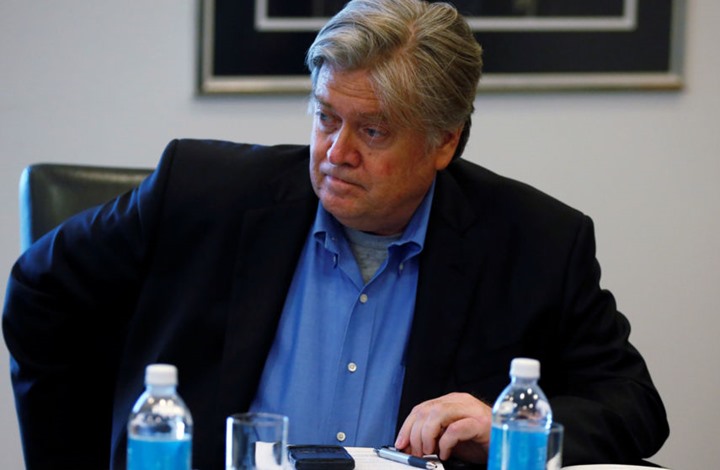The Saudi Arabia-led isolation of Qatar over its alleged financing of terrorists and relationship with Iran is the most important foreign confrontation in the world, U.S. President Donald Trump’s former strategist Steve Bannon said in a speech.You couldn’t ask for a more delusional or inaccurate assessment of what is at stake in these two cases. The Qatar crisis may be the stupidest and least necessary crisis in the world, but it is nowhere near as significant or dangerous as “what’s happening in North Korea.” The crisis in the Gulf is a headache for the U.S. brought on by Trump’s careless indulgence of the Saudis and their allies (Bannon boasts about this), and it poses some dangers to regional stability, but even if it is handled poorly it isn’t going to lead to a war that could claim the lives of millions. One can think of many other conflicts and crises in the world that are more serious and important than the situation in Qatar (e.g., Yemen, South Sudan, Lake Chad, Myanmar, Syria, etc.), and it speaks volumes about how distorted and biased Bannon’s view of the Qatar crisis is that he imagines it to be the most important thing in the world.
Bannon backs the Saudi effort and said Qatar must be held to account for allegedly funding the Muslim Brotherhood and other “radical Islamic terrorism,” Bannon said in remarks hosted by the Hudson Institute on Monday.
“I think the single most important thing that’s happening in the world is the situation in Qatar [bold mine-DL],” Bannon said. “What’s happening in Qatar is every bit as important as what’s happening in North Korea.” [bold mine-DL]
Not coincidentally, Bannon has ties to a company that was hired by the UAE as part of the Saudi-led campaign against Qatar these past few months. He has also been in contact with UAE leaders while he was working in the transition and at the White House:
The speech follows Bannon’s September meeting in the UAE with its crown prince, Sheikh Mohammed bin Zayed al-Nahyan. The two weren’t strangers: Bannon, Trump’s son-in-law Jared Kushner and ousted National Security Adviser Michael Flynn met with the crown prince at Trump Tower during the presidential transition in December. That meeting triggered controversy, as the UAE hadn’t notified the outgoing Obama administration about the visit as is customary.This might not matter very much except that Bannon’s statements further complicate U.S. efforts to resolve the dispute between Qatar and its neighbors:
Gulf analysts said Bannon’s intervention adds another obstacle to Tillerson’s efforts to resolve the conflict, which have been complicated by Trump’s tweets in support of the blockade and his son-in-law’s backchannel communications with Saudi Arabia.The chances of successful mediation have never been great since Trump publicly sided with the Saudi-led bloc. The Trump administration response to the Qatar crisis has been incoherent from the start thanks to the president’s initial desire to take credit for causing it. We can see that Trump’s instinct to side with the Saudis and their allies was influenced by the bad advice he was getting from Bannon. As long as the Saudis and Emiratis believe that they still have Trump on their side, they won’t accept the compromise that is needed to end the dispute.
“Undoubtedly Bannon’s lobbying on behalf of the UAE against Qatar makes it far more difficult for Tillerson to project the Trump administration as an impartial mediator,” said David Ottaway, a Gulf expert at the Wilson Center. “The Saudis and Emirates believe Bannon reflects Trump’s visceral bias against Qatar because of its support for the Muslim Brotherhood and Hamas.”
-------------------------------------
The American Conservative









 Home
Home Politics
Politics











